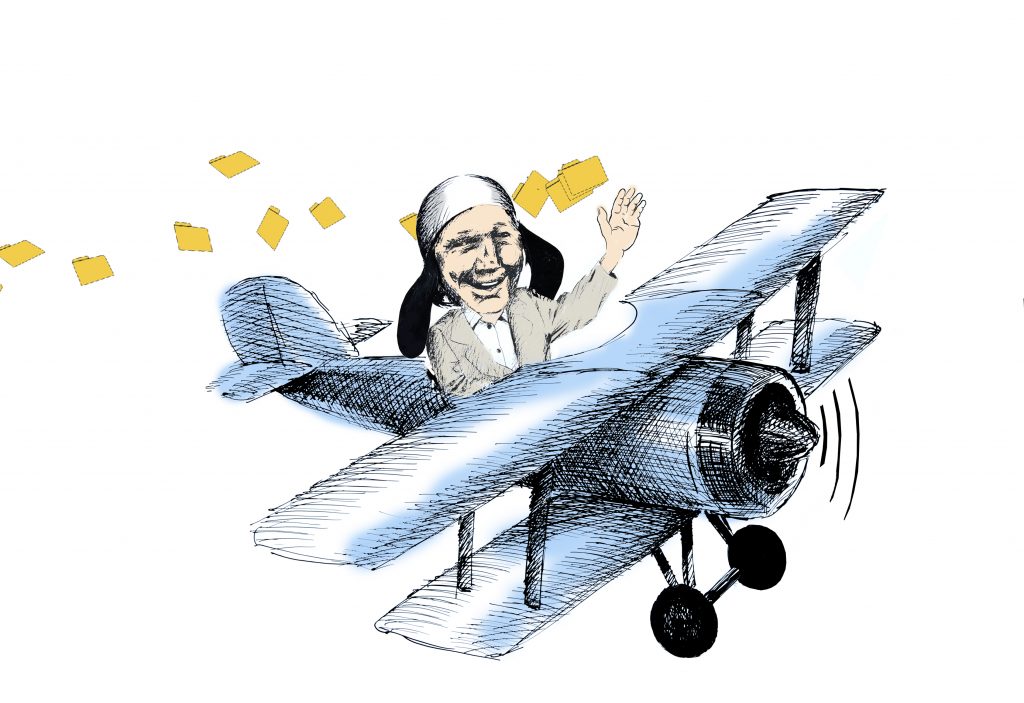WikiLeaks founder will return to Australia after pleading guilty on single criminal count.
Cross-posted from Middle East Eye

Caricature: valeriy osipov/Creative Commons
Julian Assange, the founder of WikiLeaks, has been released from prison in the UK and is set to return to his native Australia as a free man after agreeing to plead guilty on Tuesday to violating US espionage law.
Assange, 52, will plead guilty to a single criminal count of conspiring to obtain and disclose classified US national defence documents, according to filings in the US District Court for the Northern Mariana Islands.
His 14-year British legal saga, which included a seven-year spell confined to the Ecuadorian embassy in London, ended on Monday, when he was released from Belmarsh prison having spent more than five years there.
Assange flew out of the UK from Stansted Airport on Monday evening. He is on his way to Saipan, the largest of the Northern Mariana Islands, a US commonwealth in the western Pacific.
In Saipan, Assange is due to be sentenced to 62 months of time already served at a hearing on Tuesday morning local time. The US territory was chosen because of Assange’s opposition to travelling to the mainland US and for its proximity to Australia, prosecutors said.
Between 2010 and 2019, Assange and his team fought allegations of sex crimes involving two women brought against him in Sweden. In 2019, Swedish authorities dropped the investigation.
Washington against WikiLeaks
But from inside Belmarsh, Assange had to continue to battle extradition to the US, where he faced 18 criminal charges relating to the mass release of secret US documents by WikiLeaks, the largest security breaches of their kind in US military history.
The 700,000 documents published by WikiLeaks included diplomatic cables and battlefield accounts.
Among other classified material, WikiLeaks released a video, provided to it by Chelsea Manning, then a US army private, in April 2010, which showed two US helicopters killing about a dozen people in a suburb of Baghdad. Two of the innocent civilians killed were Reuters journalists.
An enraged US government viewed Assange as an enemy actor who had endangered the lives of agents through the mass release of confidential material. Assange’s lawyers called the US pursuit of their client “state retaliation”.
To free press advocates and his supporters, who included world leaders, celebrities and some prominent journalists, Assange, for all his complexities as a character, remains a hero for exposing wrongdoing and alleged war crimes, and was persecuted simply because he embarrassed and exposed US authorities.
Assange’s wife, Stella Assange, with whom he has two children, told Reuters that she felt “elated” following her husband’s release.
“I also feel worried,” she said. “Until it’s fully signed off, I worry, but it looks like we’ve got there. I’ll really believe it when I have him in front of me and I can take him, and hug him, and then it will be real.”
After the hearing in Saipan, Assange will fly to Canberra where he will arrive on Wednesday, his wife said.
He recently won permission to appeal against the approval of his US extradition and the case was due to be heard at London’s High Court next month, a factor that his wife said helped galvanise talks over a deal.
Assange seeks pardon
The Australian government, led by Prime Minister Anthony Albanese, has been pressing US President Joe Biden for Assange’s release but declined to comment on the legal proceedings as they were ongoing, Reuters reported.
“There is nothing to be gained by his continued incarceration and we want him brought home to Australia,” Albanese said in the country’s parliament.
Stella Assange said the US government should have dropped the case against her husband altogether.
“We will be seeking a pardon, obviously, but the fact that there is a guilty plea, under the Espionage Act, in relation to obtaining and disclosing national defence information is obviously a very serious concern for journalists,” she said.
Speaking about the campaigners and supporters who fought for Assange, WikiLeaks editor Kristinn Hrafnsson said: “I can say in earnest that without your support this would have never materialised, this important day of joy, the day of Julian’s freedom. Thank you so much.”
Due to the Israeli war crimes in Gaza we have increased our coverage from five to six days a week. We do not have the funds to do this, but felt that it was the only right thing to do. So if you have not already donated for this year, please do so now. To donate please go HERE.


Be the first to comment